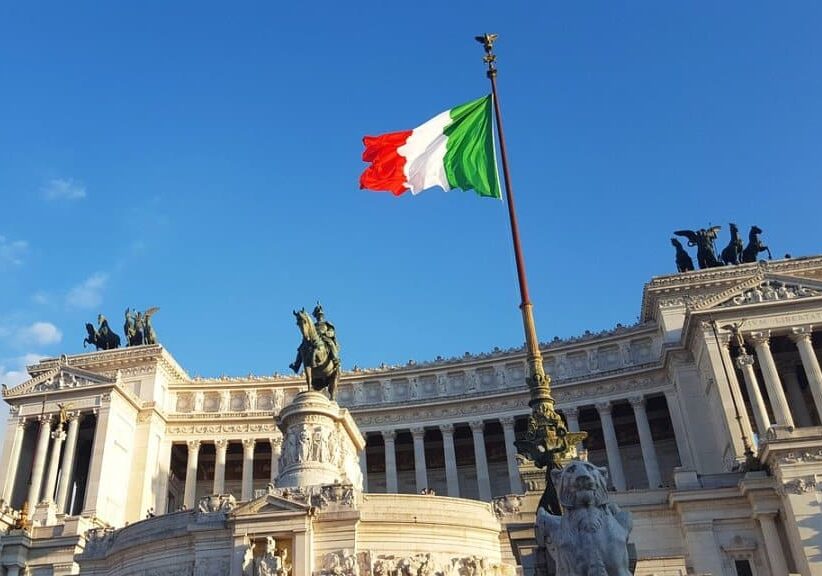
When buying property in Italy, prospective buyers have a wide variety of homes to choose from, including vacation homes in the countryside, apartments in the historic part of town, and lovely seaside homes that help you escape the noise of city life.
This guide will help you navigate the process of buying a property in Italy. It will explain in detail the current state of the Italian real estate market, the types of homes available, the costs of property purchase, and finally, the most common pitfalls.
Why Consider Buying Property in Italy?
One of the most common reasons why North Americans, UK citizens, and any other foreign nationals start considering purchasing property in Italy and moving there is due to the country’s scenic landscapes and outstanding balance between laid-back and hard-working life lifestyle.
Here are the main reasons why consider property purchase in Italy:
- Diverse lifestyles: Prospective Italian property owners can choose the lifestyle that is suited for them. They can choose from luxurious villas in calm areas like Tuscany and vibrant city life in places like Rome and Milano.
- Property price: Compared to other popular European countries like France and Spain, it might be more beneficial to purchase property in Italy given that the prices are lower outside tourist areas.
- Rich culture and history: While living in Italy, you get to discover centuries of history, world-class art, and a culinary tradition.
- Warm climate: Italy is best known for its warm climate, but there are other areas that will make buying property in Italy a worthwhile investment, like the cool alpine area in the north.
- Income potential: Italian property owners can also choose to rent out their property. This can be quite lucrative if you own a vacation home at the seaside or in any other tourist destination.
What’s the Real Estate Market Like in Italy?

Even though the Italian real estate market has seen some fluctuations in the past, it’s fairly stable and it remains a solid option for investment. Essentially, it boils down to finding the right property for you.
Here’s the breakdown of the real estate market according to regions:
- Northern regions: Northern Italy, especially regions like Tuscany, Lombardy, and Veneto, typically have higher house prices, particularly in major cities. The most common type of buyers in this region are those who want luxury homes, vineyards, or properties in urban centers.
- Southern Italy: In contrast, southern regions like Calabria, Puglia, and Sicily have more affordable property options. Precisely because of that, Southern Italy is popular for those looking for budget-friendly purchases or investment opportunities.
It’s also worth noting that the property prices, as well as agent fees, are more expensive in large cities like Rome, Milan, and Naples. This is largely due to high demand.
Rural areas, on the other hand, have more budget-friendly prices, but you should speak Italian since most locals don’t speak English.
On top of that, the Italian government is incentivizing both local and foreign buyers to invest in rural areas by offering properties for as little as €1.
All Types of Property in Italy
Italian citizens and foreign investors looking to buy property in Italy have access to different property types. The most common types of homes house hunters will encounter include the following:
1. Countryside villas:
These are among the most sought-after properties in Italy, especially in regions like Tuscany and Umbria.
These homes are often stretching on large plots of land and usually have olive groves or huge vineyards.
2. City apartments:
For all those who prefer the hustle and bustle of urban life over tranquil villas, the best deal for you would be buying a city apartment.
The most common locations include cities like Rome, Florence, Venice, and Milan. Naturally, you can find both modern apartments and historic homes in the city center.
3. Coastal properties:
The property market in Italy also includes a variety of coastal properties. Real estate agents typically offer homes on the Amalfi coast, which offer stunning sea views and are great for short-term rentals.
Another factor that might be included in the price of the property is it being within walking distance of a beach.
4. Historic homes:
Given that Italy is known for its rich culture and history, many foreign investors are looking to buy property in Europe that holds cultural significance.
Buying this type of real estate in Italy means you’ll probably have to invest more money in renovation and restoration, and it would be good to coordinate this with Italian banks in advance.
Step-by-Step Guide on Purchasing Property in Italy
Buying property in Italy can be a bit more complex than in other countries, but if you get agents and a mortgage broker, you should have your Italian home in no time.
Here’s a breakdown of the key steps of property purchase in Italy:
1. Research the market:
First of all, it’s highly recommended you start your Italy search for a home by thoroughly researching the region you’re interested in and the types of Italian properties available.
Also, consider which type of home will suit you and your family members.
2. Hire a real estate agent:
A reputable real estate agent can help you navigate the Italian property market, find the best property for you, and make the purchase process simple.
If you’re a non-resident, you should look for an agent who specializes in international purchases and can help you meet all legal requirements.
3. View properties:
When you find a home that fits you and your family, the next step in the buying process is to visit the property and take a look at all the features this home comes with.
4. Make a formal written offer:
If find a good investment, draft a formal written offer with your agent and submit it to the seller, outlining your purchase price and any conditions.
5. Sign a preliminary contract (Compromesso):
After your offer is accepted, you’ll sign a preliminary contract (also


